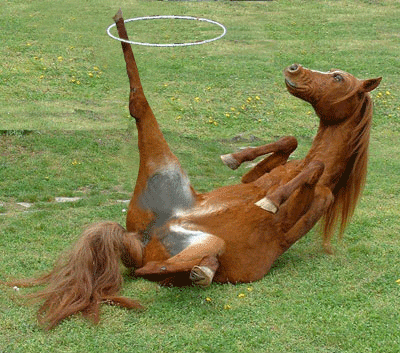STOCKHOLM - Swedish furniture giant Ikea was drawn into Europe's widening food labeling scandal Monday as authorities said they had detected horse meat in frozen meatballs labeled as beef and pork and sold in 13 countries across the continent.
The Czech State Veterinary Administration said that horse meat was found in one-kilogram packs of frozen meatballs made in Sweden and shipped to the Czech Republic for sale in Ikea stores there. A total of 760 kilograms (1,675 pounds) of the meatballs were stopped from reaching the shelves.
Ikea spokeswoman Ylva Magnusson said meatballs from the same batch had gone out to Slovakia, Hungary, France, Britain, Portugal, the Netherlands, Belgium, Spain, Italy, Greece, Cyprus and Ireland. Magnusson said meatballs from that batch were taken off the shelves in Ikea stores in all those countries. Other shipments of meatballs were not affected, she added.
However, the company's Swedish branch announced on its Facebook page that it won't sell or serve any meatballs at its stores in Sweden out of concern for "potential worries among our customers."
Magnusson said Ikea saw no reason to extend that guidance globally. She said Ikea was conducting its own tests of the affected batch. She also said that two weeks ago Ikea tested a range of frozen food products, including meatballs, and found no traces of horse meat.
Ikea's stores feature restaurants and also sell typical Swedish food, including the so-called Kottbullar meatballs.
European Union officials were meeting Monday to discuss tougher food labeling rules after the discovery of horse meat in a range of frozen supermarket meals such as burgers and lasagna that were supposed to contain beef or pork.
The Czech authority also announced Monday that it found horse meat in beef burgers imported from Poland during random tests of food products.
Spanish authorities, meanwhile, announced that traces of horse meat were found in a beef cannelloni product by one of the brands of Nestle, a Switzerland-based food giant. The Agriculture Ministry said it was a case of fraudulent labeling but represented no health threat.
In a statement on its website, Nestle Spain said that after carrying out tests on meat supplied to its factories in Spain it was withdrawing six "La Cocinera" products and one "Buitoni" product from store shelves.
It said it was taking the action after the traces of horse meat were found in beef bought from a supplier in central Spain. Nestle said it was taking legal action against the company, adding that the products would be replaced by ones with 100 percent beef.
Some EU member states are pressing for tougher labeling rules to regain consumer confidence.
The 27-nation bloc must agree on binding origin disclosures for food product ingredients, starting with a better labeling of meat products, German agriculture minister Ilse Aigner said.
"Consumers have every right to the greatest-possible transparency," she insisted.
Austria backs the German initiative; but others like Ireland say existing rules are sufficient although Europe-wide controls must be strengthened to address the problem of fraudulent labeling.
The scandal has created a split between nations like Britain who see further rules as a protectionist hindrance of free trade under the bloc's single market, and those calling for tougher regulation.
Processed food products — a business segment with traditionally low margins that often leads producers to hunt for the cheapest suppliers — often contain ingredients from multiple suppliers in different countries, who themselves at time subcontract production to others, making it hard to monitor every link in the production chain.
Standardized DNA checks with meat suppliers and more stringent labeling rules will add costs that producers will most likely hand down to consumers, making food more expensive.
The scandal began in Ireland in mid-January when the country's announced the results of its first-ever DNA tests on beef products. It tested frozen beef burgers taken from store shelves and found that more than a third of brands at five supermarkets contained at least a trace of horse. The sample of one brand sold by British supermarket kingpin Tesco was more than a quarter horse.
Such discoveries have spread like wildfire across Europe as governments, supermarkets, meat traders and processors began their own DNA testing of products labeled beef and have been forced to withdraw tens of millions of products from store shelves.
More than a dozen nations have detected horse flesh in processed products such as factory-made burger patties, lasagnas, meat pies and meat-filled pastas. The investigations have been complicated by elaborate supply chains involving multiple cross-border middlemen.
Views: 271
Comment
© 2026 Created by WORLD WRAP FEDERATION.
Powered by
![]()



You need to be a member of WORLDWRAPFEDERATION.COM to add comments!
Join WORLDWRAPFEDERATION.COM